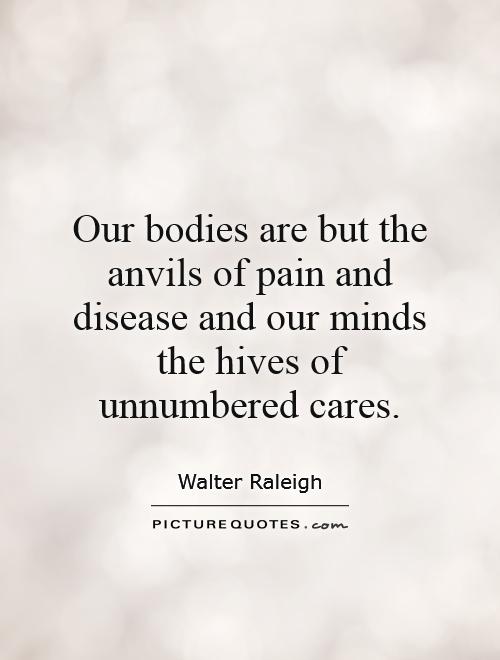Our bodies are but the anvils of pain and disease and our minds the hives of unnumbered cares

Our bodies are but the anvils of pain and disease and our minds the hives of unnumbered cares
Sir Walter Raleigh, a prominent figure in the Elizabethan era, was not only known for his exploration and colonization efforts, but also for his keen observations on the human condition. In his writings, Raleigh often delved into the complexities of the mind and body, exploring the interconnectedness of physical and mental health.The quote, “Our bodies are but the anvils of pain and disease and our minds the hives of unnumbered cares,” encapsulates Raleigh’s understanding of the fragility of the human experience. Raleigh recognized that the body is susceptible to the ravages of pain and disease, serving as a vessel for suffering and hardship. The physical form, like an anvil, bears the weight of these afflictions, enduring the blows of illness and discomfort.
At the same time, Raleigh acknowledged the profound impact of mental anguish on the human psyche. Our minds, he believed, are akin to hives teeming with countless worries and anxieties. The burdens of life, whether personal or societal, can weigh heavily on the mind, creating a breeding ground for stress and unease. Raleigh understood that the human experience is not just a physical one, but a mental and emotional one as well.












 Friendship Quotes
Friendship Quotes Love Quotes
Love Quotes Life Quotes
Life Quotes Funny Quotes
Funny Quotes Motivational Quotes
Motivational Quotes Inspirational Quotes
Inspirational Quotes